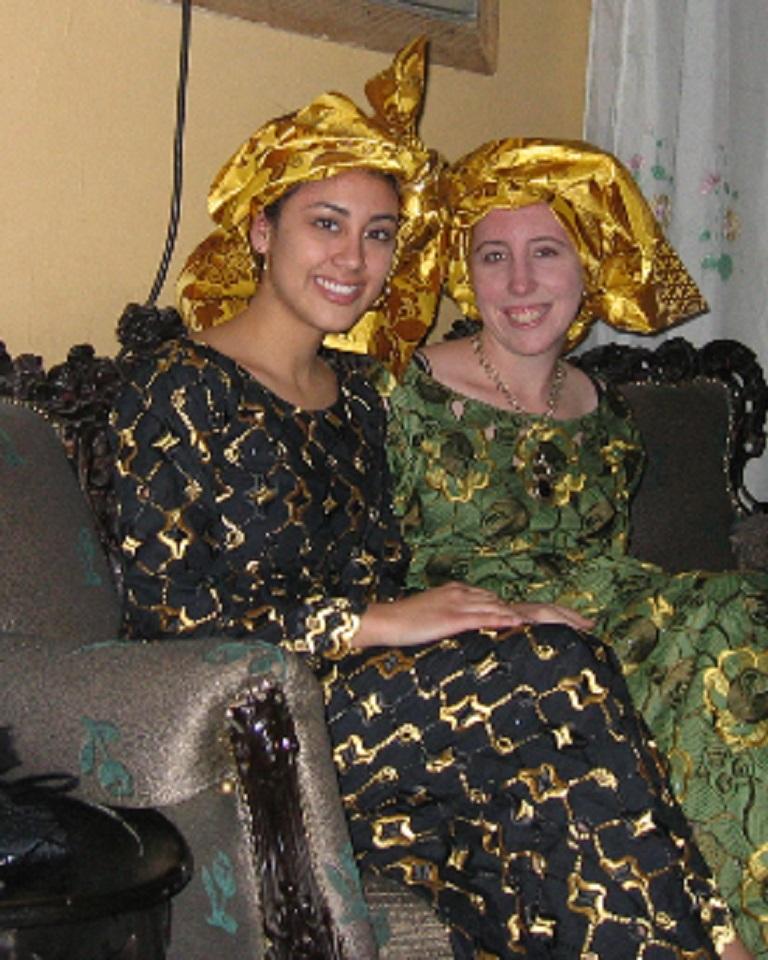Kathryn (Katie) Rhine

MENTOR SPOTLIGHT | NOVEMBER 2014
Department: Anthropology
Describe your work in a few sentences that we can all understand.I am a medical anthropologist and I study the relationship between culture and health in Nigeria. I am interested in the transnational flows of policies, professionals, and resources devoted to intervening in global health problems. I ask questions about how medical knowledge, technologies, and treatments transform how people think about themselves, experience their bodies, forge social relationships, and engage in politics. Over the past 12 years, I have worked among women who live with HIV in northern Nigeria. Most recently, I have turned my attention to road traffic accidents and trauma care.
Q: How did you first get interested in doing research/creative work?
A: As an undergraduate, I volunteered as a counselor at a camp for the families of HIV-positive children. There, I witnessed how antiretroviral medications are changing the lives of patients and their families. I also observed how HIV complicates family life. Because I had an interest in African Studies and public health, as well as anthropology, I carried out ethnographic research and wrote an undergraduate honors thesis on the reproductive health experiences of Congolese migrants in Washington, DC. After that, I was awarded Fulbright and Boren fellowships to go to Nigeria to study the prevention of mother-to-child transmission of HIV. After living in Nigeria for a year, I knew that this is where I wanted to work. I began to learn Hausa and grasp a set of important research questions, which I have been pursuing ever since.
Q: What do students in your discipline learn by doing research that they wouldn’t learn by just taking classes?
A: Ethnographic research, the mainstay of cultural anthropology, is deceptively difficult. Although anthropologists themselves may jokingly refer to themselves as “professional busy-bodies” because we want to know about everyone’s business, a better term is “professional stranger.” Research requires you live or work among a group of people with whom you are entirely unfamiliar. It is an awkward, sometimes embarrassing, and always humbling experience when you realize just how little you know about life in a place outside of the one you grew up in. You may need to re-learn how to speak (sometimes in another language), eat, dress, walk, drive, and be polite. In addition, many of the taken-for-granted things we think we know about gender, race, ethnicity, class, and even our bodies are challenged when we see that these categories mean very different things to different people. Research in cultural anthropology teaches you how to relate empathetically to others.
Q: What do you find to be the most exciting part of doing research/creative work? What makes this line of work meaningful and interesting to you?
A: You can apply what you learn in anthropology to everything! Medicine, politics, law, engineering, finance, development, environmental studies – all of it is up for grabs. Anthropology gives you a tool kit of new ways to think, ask questions, and analyze what you learn – but your questions can relate to any facet of social life in any country in the world! Fieldwork requires us to leave the books behind and experience the world first-hand. You could participate in a surgery, star in a movie, learn how to concoct “love potions,” give testimonies in churches, design clothes, talk your way out of bribing corrupt police officers, deliver culturally-appropriate insults, cook new cuisines, and become part of families. I have done all of this in Nigeria – and so much more.
Q: What advice do you have for undergraduates interested in doing research in your field?
A: Study abroad, travel, learn a language, and conduct community service. Take advantage of every opportunity to learn beyond the boundaries of the classroom. Be courageous. Be safe.
Q: For many students, doing research is the first time they have done work that routinely involves failure and the need to troubleshoot problems. Can you tell us about a time that your research didn’t go as expected? Have you developed any tricks or habits that help you to stay resilient in the face of obstacles?
A: Nigeria is one of the most challenging countries in the world to conduct research. The bureaucratic barriers to overcome in order to carry out your work are daunting. And just “getting by” is exhausting. There will often be no electricity and your cell phone will die, just when you need to make an urgent call. There will be no water for a shower, when you come home after spending five hours stuck in traffic in sweltering heat. People will repeatedly stand you up for interview appointments. They will insult you behind your back and question your motives. Or you will just be ignored. You fall sick often – and you will want to go home so badly, you ache. Because of all of this, it is easy to just withdraw. You will write, read, Skype with friends, watch movies, anything to avoid this stress. And that is completely normal, despite how guilty you will feel. My advice is to just try and do one meaningful thing per day, outside of the house. It may be simply going to a corner store and talking to the clerk. Buy some snacks. Or go to the taxi stand to talk to the drivers. Take a ride to greet a friend. Get a pedicure and talk to the salon ladies. “Research” does not always have to be official, structured interviews with powerful people; you can learn a lot from these ordinary encounters.
Q: How do you spend your time outside of work?
A: In Lagos, where I lived and carried out research throughout last year, I would escape the stress of fieldwork at the “American Club,” where I swam in their gorgeous pool and ate American delicacies like nachos or onion rings. In Lawrence, I love it all – quirky parades, farm tours, arts festivals, downtown bars, and best of all – basketball games!